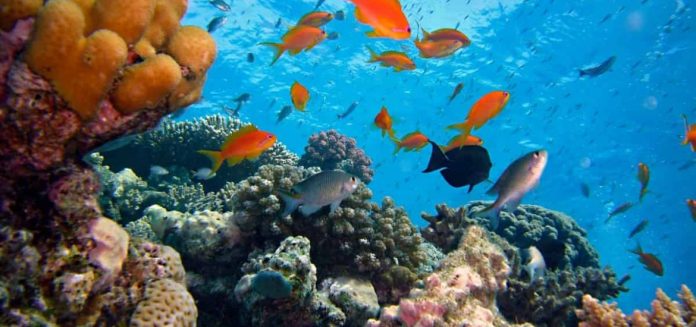Despite the many challenges facing the world’s oceans today, coral reefs remain strongholds of marine biodiversity. Thousands of species of fish of all shapes and sizes call these colourful, complex and economically important ecosystems home. Impending ocean warming, however, spells trouble for these fishes.
Ever since the first global coral bleaching event devastated reefs in the late 1990s, scientists have worked to document the effects of these catastrophic phenomena on coral reef fishes. In the wake of severe bleaching, coral mortality often leads to changes in the community of fish that live on the reef: fish that feed on corals decline, while those that feed on algae increase as the latter proliferates.
But what happens to fish during a severe heat stress event — that is, when water temperatures rise, but the corals have not yet bleached and died? It seems that very few scientists have tried to find out.
Our new study, published in Ecological Applications, surveyed reef fish communities before, during and after the 2015–16 El Niño on Kiritimati, a coral atoll in the Pacific Ocean, that is part of the country of Kiribati. Our research suggests that short-term increases in water temperature may have devastating impacts on reef fish populations and the local communities that rely on them. Read more…



